


|
Drummers and bassists: this album's for you. And it's for guitarists/percussionists/fans of great music too. Put simply, Steve Khan's hard-to-track-down "CASA LOCO" has enthralled me and a whole generation of jazz and jazz/rock aficionados for over 30 years. The compositions and performances of guitarist/leader Khan, bassist Anthony Jackson, drummer Steve Jordan and ex-Weather Report percussionist/vocalist Manolo Badrena are unique and unforgettable. The album is also totally unclassifiable - a 'fusion' band playing a blazing surf-rock cover tune ("Penetration")? An unhinged Puerto Rican percussionist singing in quasi-Spanish but sounding remarkably like Sting? "CASA LOCO" is full of such beautiful and unpredictable juxtapositions. And it's also blessed with Jean-Michel Folon's eye-catching cover art. I had bought Steve's 1981 album "EYEWITNESS" just on the strength of the Folon cover, but was immediately blown away by the Jordan/Jackson all-time-great drums/bass combination, Khan's enigmatic, inimitable voicings, and Badrena's inspired percussives. But "CASA LOCO," the 1983 follow-up, cranked everything up a notch. Steve Khan, the son of Sinatra/Dean Martin/Doris Day lyricist Sammy Cahn, is one of the most respected guitarists of the 'fusion' era. He played on not one but four of the great Steely Dan tunes ("Peg"; "Babylon Sisters"; "Gaucho"; "Glamour Profession"), contributing to the latter one of the finest guitar solos in the band's oeuvre, though he has mixed views on the painstaking recording process that led to those landmark pieces. Check out his great interview with Leo Sidran for more on this and also a good overview of his career in general. But Steve is also one of jazz and fusion's most erudite and honest figures, revealing (almost) all on his excellent website. He knows – metaphorically speaking – where the bodies are buried, and doesn't pull his punches. Steve, who recently released a well-received solo album "SUBTEXT," spoke with great candour and humour to movingtheriver.com from his New York City base. Matt Phillips "MOVING THE RIVER" [1] "CASA LOCO" still sounds fantastic over 30 years on – how important was engineer Doug Epstein in the recording process? [SK] On countless levels, Doug Epstein was huge in all of this. At that time, Doug was the only person, on the technical side of things, who had participated in every single recording of mine. 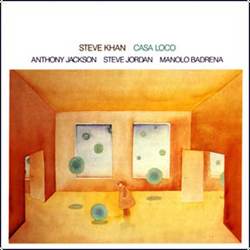 I owe him so much. He was always full of enthusiasm and energy for whatever it might have been that I was doing, and he encouraged me to do more. Knowing the financial difficulties we were having, he was the first one to offer to try to get the executives at Mediasound to give us a break on the recording costs, and everyone there was wonderful to us. Nothing, of course, was ever free, but they tried their best to help. I owe him so much. He was always full of enthusiasm and energy for whatever it might have been that I was doing, and he encouraged me to do more. Knowing the financial difficulties we were having, he was the first one to offer to try to get the executives at Mediasound to give us a break on the recording costs, and everyone there was wonderful to us. Nothing, of course, was ever free, but they tried their best to help.Of course, on the recording end of things, Doug was absolutely fearless. I think that most of the problematic issues came from Steve Jordan's constantly changing, per tune, hybrid kit of drums: a combination of natural drums and Simmons electronic drums. Then there was Manolo's amazing percussion set-up of that time which included all his natural and supernatural sounds, plus the electronics emanating from the Syn-cussion that he was using back then. To accommodate all of that on 24-trks., with one track taken for SMPTE code and another one blank just because of the risk, there were really only 22-trks. available, at least, I think so. In the end, Doug had to know where each tune was headed, in terms of possible overdubs, vocals, etc.!!! He did all of that. But, it has to be noted that Steve Jordan, where our mixing process was concerned, was hovering over Doug's shoulder the entire time, and in many ways, Steve is totally responsible for being the protector of Anthony's bass sound and playing, and for his own drums, of course. Steve's contributions in this regard were indispensable to the overall sound that you have come to know!!! Steve was present for the mixes on all 3 of our recordings together. He had a vision, and a sound in mind, and he pushed hard for that. In great part, that's why he has become an excellent producer himself! He has a great ear for these things!!! [2] There's a big Police influence on the album. Who brought that into the band? [SK] I would say that Steve Jordan brought that into the band. Yes, without question. i don't think that Anthony Jackson had ever heard anything by The Police. The fact that Manolo sounds a bit like Sting at times is just a cosmic accident. It's not intentional at all. And, of course, 90% of the time Manolo is either singing in Spanish or vocalese, or his own form of gibberish!!! Recently, the great French Jazz journalist Frédèric Goaty wrote a piece for MUZIQ Magazine about his perceptions of the influence of The Police in contemporary music, and he cited all 3 of our albums as examples. [3] Regarding Steve Jordan's famous drum solo on the title track - how the hell did you and Anthony stay in time when he really starts going out?! [SK] Speaking for myself, it wasn't easy. Anthony and Steve had a way of stretching the rhythmic boundaries in ways that would often confuse me, and I would get turned around. It was always an exercise in feel and concentration. 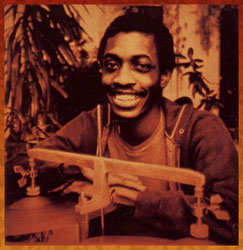 That day, in the studio, my concentration was at its highest level, because there was NO WAY that I was going to screw something up and ruin Steve Jordan's incredible drum solo!!! No fucking way!!! It remains one of the great moments on any recording of mine!!! That day, in the studio, my concentration was at its highest level, because there was NO WAY that I was going to screw something up and ruin Steve Jordan's incredible drum solo!!! No fucking way!!! It remains one of the great moments on any recording of mine!!!I think that the complexities of that solo section, which is really a simple Latin tumbao, are demonstrated by the fact that MODERN DRUMMER Magazine published a transcription of the drum solo, but with the tumbao completely turned around and written out incorrectly!!! So, even an educated musician can get screwed-up with that one. I remember once when we were playing at Seventh Avenue South, here in New York City, and Bob Mintzer, one of the greatest musicians that I've ever known, came up to me after a set of music like that, and said, "What the fuck are you guys doing?!?!?! I can't ever find 'one'!!!" If Bob Mintzer felt that way - I guess there isn't a much higher compliment. But, it was never our intent to play anything that was purposely confusing to anyone!!! [4] The structure of "Some Sharks" is incredibly intricate with many repeat signs and tags – were all the guys reading charts while recording this? [SK] At that time, I don't believe that there were any formal charts to any of the tunes. We rehearsed hard and long, and we were prepared. The first lead sheets were done afterwards, I believe. I did them for copyright purposes, nothing more. I remember, when doing that, how astonishing it was to see, on paper, the intricacy of the music that we had created by improvising, and just jamming together pieces of music. It's possible that I had written out "Uncle Roy" beforehand, but maybe not. It's hard to remember now!!! My faculties are not what they once were!!! [Laughter] But, when I listen to what Steve Jordan contributed to that tune with his unique concepts of beat displacement, it's remarkable, and when you add in Anthony's perspective, it makes perfect sense as to why the recordings that we made together between 1981-1983 have influenced bassists and drummers all over the world. Anthony and Steve deserve all of that adoration and 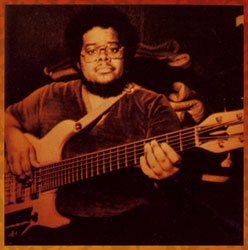 MORE!!! MORE!!![5] "The Suitcase" hints at a "DISCIPLINE"-era King Crimson influence - is that true? [SK] Relative to me, I never paid any attention to King Crimson's music at any time. However, thanks to MTV, I did get to hear "Elephant Talk" and I absolutely loved that tune. I love Adrian Belew, and only WISH that I could create 5% of the sonic textures that he creates. He is absolutely completely and totally unique and brilliant. I admire him a lot. [6] Why is Steve Ferrone thanked in the credits? [SK] To tell you the truth? I have no idea!!! In those days, we thanked people who stopped by the studio while we were recording, just for their good vibes! It's also possible that Steve Ferrone lent something, a piece of gear, to Steve Jordan? I just can't remember. We thanked people who didn't even exist. For example, at one of our sleep-deprived rehearsals, Steve Jordan was trying to say the name, Gore Vidal, and somehow it came out as Gordie Voll, and once he said that, I was rolling on the floor laughing - it was just so silly and funny!!! So, Gordie ended-up in the Special Thanks section. I thanked a CNN newswoman, Marcia Ladendorff, who I had a crush on. I thanked an actress that I had a crush on too, Roberta Leighton. I thanked Flippy Hussein, who is not a real person - just a goofy name that the great vibraphonist David Friedman made up one day years before. But most of the names mentioned were people who, in some way, shape or form, contributed something positive, even if only via their encouragement, to the music and the effort to keep going forward. [7] Is there anything printable you can tell us about Steve Jordan's crazy house of music?! [SK] In all honesty, NO!!! Unless someone wants to burn all their bridges behind them, there is a sacred trust that exists between musicians - especially those who are bandmates, or even just work on a special project together. You don't "talk out of school" about things that you see and hear - sometimes not even after a person has passed away. Those kinds of stories can be hurtful, and even end-up hurting relatives or loved ones. In those days, each of us was going through something difficult in our personal lives, and our behaviors reflected that. Trying to just get together to rehearse for a few hours a couple of days per week was never easy, but we managed. 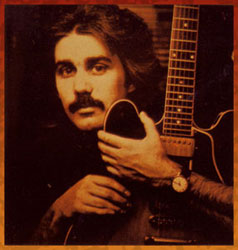 And Steve Jordan's loft, his home, was a huge part of that. And Steve Jordan's loft, his home, was a huge part of that.I can only say that all kinds of hysterical shit used to happen there - including people trying to stop by to hang-out with us while we were trying to work. Jaco Pastorius was one of them. He used to phone Jordan all the time, and beg us to let him come by. We reached a point where we would never answer the phone, and never allow anyone in - except for the delivery guy who was bringing by Steve Jordan's breakfast - at 2 P.M. in the afternoon!!! Does that give you an idea? No matter what transpired, those days were some of the MOST fun and productive days of my creative life. I have rehearsal cassettes from those times - and, I used to get them out and listen to them every so often - and the constant laughter on those tapes, about absolutely nothing, is priceless. It was just so damn funny most of the time - and exasperating too, at least for me!!! [8] I was astonished to read that the whole album was recorded in just TWO days, quite astonishing when you consider the time spent on other albums of the era (Hello Donald and Walter...). How do you explain that? Was it just a case of getting the goods in the shortest possible time with the meter running? [SK] Well, though it is true that the serious content of "CASA LOCO" was recorded during May 21st-22nd, 1983 @ Mediasound, I didn't realize that we were going to need a 3rd day just for Manolo Badrena!!! I actually thought that we could finish a performance of a piece, and then, he would simply, right then and there, overdub his vocals. I'm speaking about tunes like: "Casa Loco"; "Some Sharks"; and "The Suitcase." But what happened really threw me for a loop, because I did not want to spend the money, other than for mixing, to return to the studio just for Manolo. Thinking this way demonstrated my lack of experience and understanding that recording vocals, by anyone, requires a different kind of care and patience. It is something that you have to plan for. I was too worried about spending money for an extra day in the studio! The great lesson in this is always the same: "If you begin by being cheap, you will pay for it later!!!" There is, of course, a most wonderful expression for this very thought in Spanish: "Lo barato sale caro!" If you are unwilling to spend money, you will end-up with a lousy or sub-standard sounding recording, and this is something that I never want to be a part of, because you have to live with the results forever. So as the recording unfolded, during the sessions, on 3 of the tunes: "Casa Loco"; "Penetration" and "Some Sharks" Manolo actually just sat there, and didn't play a damn thing while Anthony, Steve and I were performing those tunes. 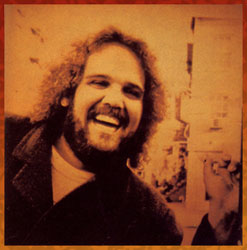 At the time, he just motioned wildly to me indicating that he could not hear himself in the headphones. Mediasound had one of the early systems, whereby each musician could make his own headphone mix. Each time this happened, we all tried to work harder with Doug to help Manolo get what he wanted and needed. It was so frustrating to have him there and NOT have him with us while making that music. So, in the end, I had to spend the time and money overdubbing him on those tunes. I was furious about this!!! At the time, he just motioned wildly to me indicating that he could not hear himself in the headphones. Mediasound had one of the early systems, whereby each musician could make his own headphone mix. Each time this happened, we all tried to work harder with Doug to help Manolo get what he wanted and needed. It was so frustrating to have him there and NOT have him with us while making that music. So, in the end, I had to spend the time and money overdubbing him on those tunes. I was furious about this!!!In sharp contrast to that, if you just listen to what Manolo contributes to "Uncle Roy" - there is not a sound there that was not performed completely live. It is simply brilliant - NO ONE else could have created textures like that. He's one of the most unique musicians on this earth, but not easy to work with. Years later, I learned that it really wasn't the damn headphones at all, he had been upset that he wasn't getting paid for the sessions - as if someone, me, was pulling a "fast one" on him, and secretly hoarding money somewhere. This is, of course, the furthest thing from the truth!!! We had a number of band meetings during our rehearsals, and I CLEARLY explained to everyone that I was paying for the album out of my own pocket - and that AFTER I had recouped my investment in full, IF that ever happened, whatever money there was to be had, we would all split it equally 4 ways!!! Period!!! In other words, we were all going to get "rich" together, or stay exactly as we were, but TOGETHER!!! It was certainly my impression that Manolo understood that. Anthony and Steve were on board, as they always were - and I will never ever forget their selflessness when it came to this music. I love them both, and I'm deeply indebted to them, forever - no matter what else has happened. [9] According to your site, you paid for recording costs entirely out of your own pocket – have you managed to recoup some of this over the years? I hope so... [SK] We've addressed a portion of this during my answers to some of the other questions. But, the answer is "NO! Absolutely not!!!" I believe that, back then, my total investment in making "CASA LOCO" was $17,500. I had hoped that I could do it all for $10,000. That might not sound like much in 2015, but it felt like a fortune to me, having to go into my personal savings to do this. But, that's how much it meant to me. It was then 2nd time that I had done that, "EVIDENCE"(1980) being the first. And, it would not be the last, I have done this 7 more times since!!! In the end, I was given advances from Trio Records(Japan), and eventually from Antilles Records(USA) that totaled $11,000, and that's all that I have ever seen come back to me from this recording. In short, as it has been with all of my self-financed recordings, I will never ever again see that money come back to me. Do I regret it? Of course not, I am, and will always be exceptionally proud of those recordings because everyone who participated gave something of themselves to do it. I don't forget those people, those players!!! Never!!!
[Photos: David Tan(1981)]
|